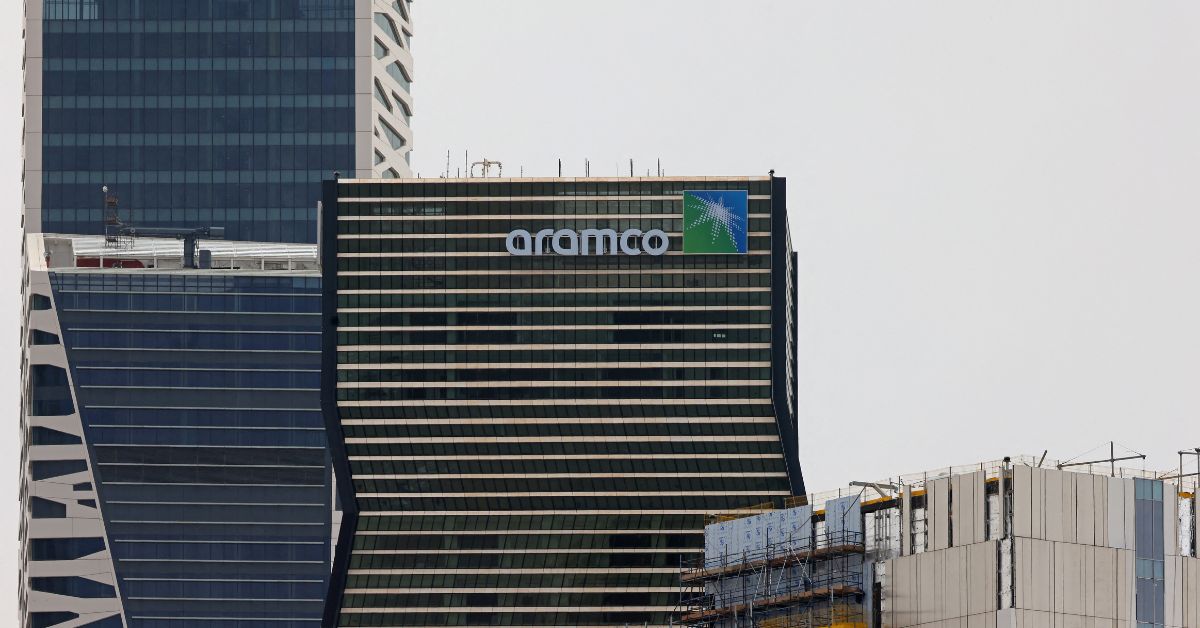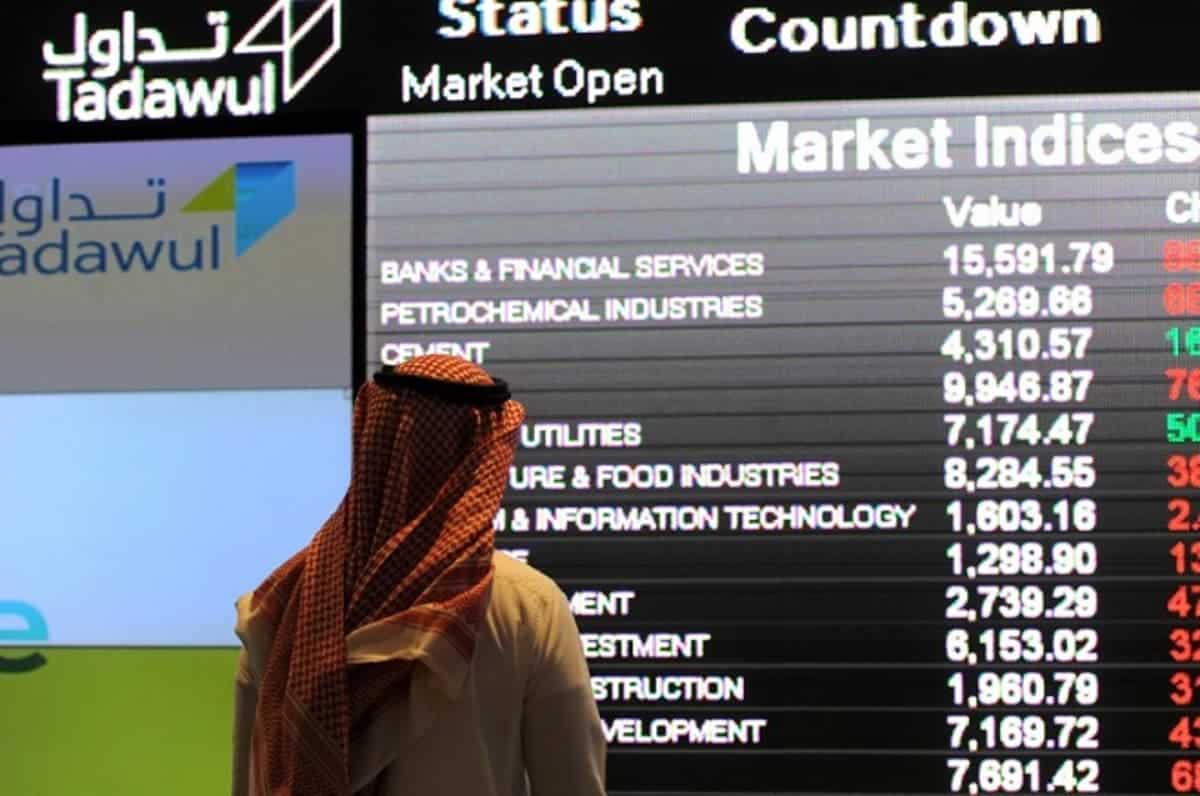RIYADH — Saudi Arabia has successfully developed its financial market in a short period of time through broad economic measures, the most notable of which was attracting substantial foreign investments. This has positioned it as one of the most active markets both regionally and globally, as well as one of the fastest-growing, especially since the start of 2024.
Economic analysts predict that the Saudi financial market will continue to see significant growth in 2024, with further increases anticipated over the next two years, due to an influx of foreign investments and the recovery of non-oil sectors.
According to Bloomberg, the Saudi stock market has been active since the beginning of the year and has risen by 6.4 percent in two and a half months, compared to a 14 percent increase throughout the last year’s trading.
The report, published on March 17, 2024, revealed that the number of companies in the Saudi market whose shares have increased by more than 10 percent since the beginning of the year has reached 123, surpassing the number of companies whose shares have seen smaller increases and losses over the past year.
At A Glance * Saudi Arabia's financial market has seen rapid development and growth, especially notable since the start of 2024, driven by substantial foreign investments. * Economic analysts anticipate continued significant growth in the Saudi financial market through 2024 and beyond, fueled by non-oil sector recovery and foreign investment influx. * The Saudi stock market reported a 6.4 percent increase in early 2024, with 123 companies seeing over 10 percent share increases. * Major share increases included "East Pipelines" Company and MBC Group, with shares up by 86.5 percent and 154 percent, respectively. * Saudi Aramco's upcoming secondary offering, potentially one of the largest in recent years, aims to further increase market liquidity with the involvement of major American banks. * The Saudi Economic Association highlighted Aramco's IPO as a major attractor of direct foreign investments and a milestone for the Kingdom's financial market. * Vision 2030's influence on economic diversification and the role of the Saudi Public Investment Fund (PIF) in boosting the Kingdom's economy and investment attractiveness. * Significant foreign investor interest evidenced by increased corporate offerings and Saudi debt instrument ownership. * Structural economic and financial reforms under Vision 2030 aim to establish Saudi Arabia as a leading investment destination and its financial market as a global force.
Shares of 16 companies rose by more than 50 percent, with three companies increasing by more than 110 percent, including “East Pipelines” Company, which saw an 86.5 percent increase. MBC Group shares rose the most in the Saudi market, increasing by 154 percent since trading started on January 8.
Saudi Anabeeb Company’s shares finished second, up 123.14 percent. This rise was fueled by the company’s financial data from the fourth quarter of last year, when profits surged by 413 percent while revenues more than tripled.
This contributed to increased market demand, with the average daily trading value reaching US$ 2.4 billion this year, up 68 percent from the previous year. Bloomberg also reported that the Kingdom is in talks with major American banks to participate in an upcoming secondary offering for the giant Aramco, which is expected to be one of the largest offerings in recent years, further increasing market liquidity.
The new offering comes four years after Saudi Arabia raised approximately US$ 30 billion in Aramco’s initial public offering, the world’s largest share sale to date. Some Wall Street banks also worked on this offer when the fees were relatively low compared to those on other listings.
According to Muhammad Al-Omran, a member of the Saudi Economic Association, “Aramco’s expected second IPO may be the largest in the world and will attract direct foreign investments.”
Al-Omran also mentioned in an interview that the Saudi financial market index has reached new heights, reflecting optimism in the Kingdom’s economy. This optimism is further bolstered by the potential for the Saudi Public Investment Fund (PIF) to offer subscription shares in its portfolio companies to secure financing and boost its cash reserves. The Fund plays a pivotal role in implementing Saudi Arabia’s “Vision 2030” initiative, which seeks to diversify the economy’s revenue sources beyond crude oil.
Aramco’s expected second IPO may be the largest in the world and will attract direct foreign investments.
Muhammad Al-Omran, member of the Saudi Economic Association
Among the latest indicators of the Kingdom’s allure for investment, Abdullah Al-Jarish, CEO of the Saudi Advanced Industries Company, announced that the company has US$133 million prepared to invest in the local stock market.
In press statements, Al-Jarish expressed that the company’s current holdings in the Saudi stock market exceed US$ 266 million, demonstrating the company’s openness to all opportunities within the Saudi market.
EFG Hermes has also shown interest in making new investments in the Saudi stock market. The company’s CEO, Karim Moussa, revealed plans to establish a US$300 million education platform focusing on Gulf countries, with a particular emphasis on Saudi Arabia.
He mentioned that 80 percent of the investment would be directed specifically to the Saudi market, indicating strong confidence in the market’s potential and investment opportunities. In an interview, Moussa shared that the company’s investors have a keen interest in investing in the Saudi market.
What has driven the surge?
Several factors are propelling the Saudi market upward, most notably the economic diversification efforts away from oil sectors and the government’s bolstering of the general budget through numerous projects. These initiatives have increased the employment of working capital in the banking sector and boosted liquidity in the Saudi stock market.
Additional factors include the Kingdom’s trend towards digitization and significant investments in the technology sector, which have been effective in attracting numerous foreign investments and strengthening the Saudi market, as well as the increasing percentage of foreign ownership in Saudi companies. Moreover, the Saudi Stock Exchange has drawn foreign investors due to the country’s strong economy and the market’s accessibility.

Last November, the Capital Market Authority announced that the value of foreign ownership in the Saudi stock market had surged by 300 percent over the previous five years, reaching $92.5 billion by the end of 2022. According to the Authority’s report, foreign investments in the main financial market climbed to historically unprecedented levels, exceeding $48 billion between 2018 and 2022.
Foreign investors’ contributions to corporate offerings have doubled, and their ownership of the Saudi debt instruments market has increased more than tenfold since the market was opened to all categories of foreign investors without restrictions at the end of 2020.
Saudi Arabia aims to be an attractive and motivating investment destination for continuity and expansion within Vision 2030. It has implemented structural economic and financial reforms that have contributed to increasing economic growth rates while maintaining financial stability and sustainability, attracting foreign investment to the Kingdom.
The Kingdom aims to make the financial market the largest in the Middle East and one of the most important globally, as well as a sophisticated and appealing market for domestic and foreign investment.

